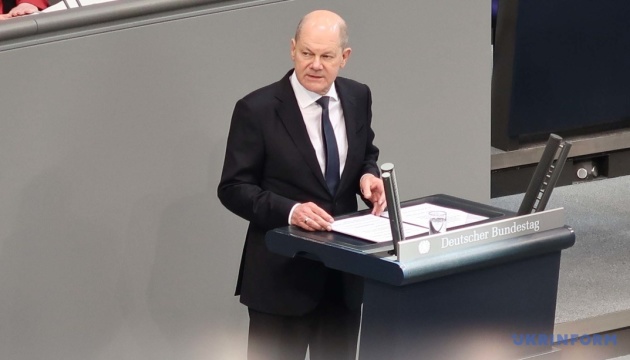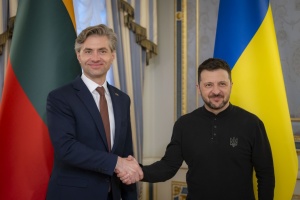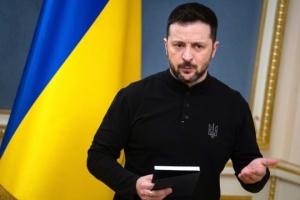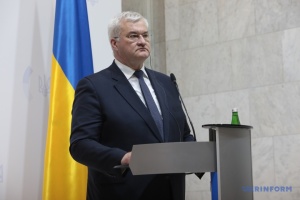
Scholz endorses use of profits from frozen Russian assets
He announced this during an address to the Bundestag on Wednesday before leaving for the EU Council in Brussels, an Ukrinform correspondent reports.
"Regarding the excess profits that we can get from the frozen Russian assets: we are talking about a couple of billions, maybe up to 5 billion this year, maybe a little less, which is available. It will be the same in the following years. I consider it correct to use these excess profits... to support the defense struggle of Ukraine," the head of the German government said.
He also spoke of plans to pass a decision, which he said should have been approved a long time ago. When supporting and purchasing weapons, when it comes to European money, one should not focus only on ensuring what is available in Europe, the head of government said. He noted that European opportunities are limited, so the decision reached in Paris at the initiative of the Czech Republic allowed to remove that limitation. The politician called it a “great sign”, as it is about solidarity, not just economic policy.
The head of the German government noted that ammunition output is increasing in Germany, and also praised cooperation with Ukraine in the joint arms production.
Scholz listed the important steps that Europe has taken to increase assistance to Ukraine recently: efforts were made to purchase the required ammunition from outside Europe, to provide financial assistance to Ukraine in the amount of EUR 50 billion until 2027 (EUR 12 billion annually), to allocate EUR 5 billion within the European Peace Facility, etc. Thus, according to Scholz, Europe managed to "overcome several barriers" in terms of aid to Ukraine.
The chancellor emphasized that he, along with the French president and the prime minister of Poland, in the format of the Weimar Triangle, share a clear common understanding that Ukraine should achieve support for as long as it takes, but at the same time the EU nations should not become a party to the conflict.
Scholz also emphasized that Germany and other European democracies would not accept peace under coercion.
He also stated that Russia is not as strong as it seeks to pose as.
As reported, EU leaders will meet this week in Brussels, with the main topic on the agenda being continued support to Ukraine.



